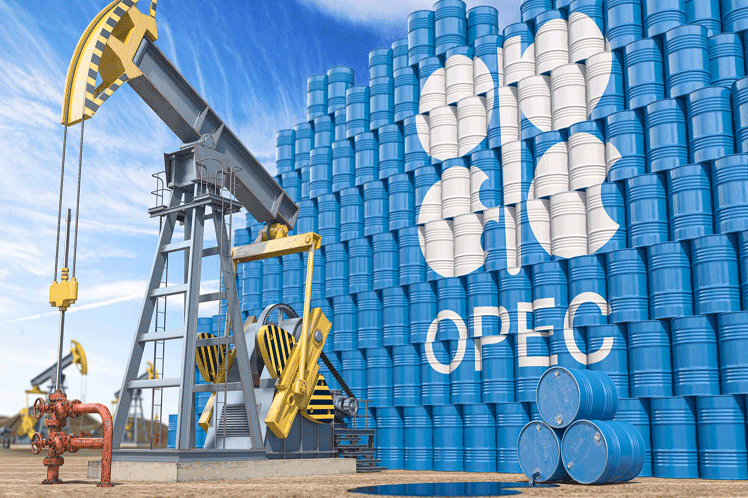Saudi Arabia, Iraq, UAE remain top 3 oil producers — OPEC
By Eyo Nsima
The Organisation of Petroleum Exporting Countries, OPEC, said Saudi Arabia, Iraq and United Arab Emirate remain the top three oil producing countries with 8.818 million barrels per day, bpd, 4.093 million bpd and 2.894 million bpd, respectively.
In its December 2023 Monthly Oil Market Report, MOMR, obtained by The Daily, www.thedaily-ng.com, OPEC also identified Equatorial Guinea as the least oil producing nation with 53,000 bpd.
Commenting on global supply, OPEC, stated: “The non-OPEC liquids supply growth forecast remains unchanged at 1.8 mb/d for 2023. The main drivers of liquids supply growth in 2023 include the US, Brazil, Kazakhstan, Norway, Guyana, Mexico and China. For 2024, non-OPEC liquids production is expected to expand by 1.4 mb/d, broadly unchanged from the previous month’s assessment. The main drivers for liquids supply growth next year are expected to be the US, Canada, Guyana, Brazil, Norway and Kazakhstan. The largest declines are anticipated in Mexico and Malaysia.”
But on demand, it stated: “The world oil demand growth forecast for 2023 remains unchanged from last month’s estimate at 2.5 mb/d. Downward revisions in the OECD Europe and Asia Pacific in 3Q23 and 4Q23 are offset by upward revisions in OECD Americas. Similarly, in the non-OECD, downward adjustments to the Middle East and Africa in 3Q23 and 4Q23 were offset by upward revisions in China, Other Asia, and Latin America.
“Oil demand in the OECD is expected to grow by around 0.1 mb/d in 2023 and by 2.4 mb/d in the non-OECD. For 2024, world oil demand is expected to grow by a healthy 2.2 mb/d, unchanged from the previous month’s assessment. The OECD is expected to expand by about 0.3 mb/d, with OECD Americas contributing the largest increase. The non-OECD is expected to increase by around 2.0 mb/d, led by growth in China, India, the Middle East, and Other Asia.”
In a statement obtained by The Daily, www.thedaily-ng.com,OPEC further stated: “Seven years ago, on this day, OPEC Member Countries and Azerbaijan; the Kingdom of Bahrain; Brunei Darussalam; Equatorial Guinea, which later joined OPEC; Kazakhstan; Malaysia; Mexico; the Sultanate of Oman; the Russian Federation; the Republic of Sudan; and the Republic of South Sudan descended on Vienna, Austria, to discuss developments impacting the global oil market.
“The meeting led to the birth of the DoC as a platform for cooperation and dialogue in the interest of oil market stability. Other producers attended the meeting in support of these historic efforts.
“The adoption of the DoC built on the successful ‘Algiers Accord’ signed in Algiers, Algeria, on 28 September 2016 at the 170th (Extraordinary) Meeting of the OPEC Conference and the subsequent ‘Vienna Agreement’ decided on 30 November of the same year in Vienna, Austria, at the 171st Meeting of the OPEC Conference.
HE Haitham Al Ghais, OPEC Secretary General, said: “The Declaration of Cooperation is a unique platform that facilitates cooperation between 23 oil-producing countries based on mutual respect, trust and dialogue. The framework has played a pivotal role in supporting market stability, global economic growth and energy security, despite the challenges they have encountered.”
The framework’s overarching objective is to support sustainable stability in the global oil market through cooperation and dialogue, including at the research and technical levels, for the benefit of all producers, consumers and investors, as well as the global economy at large.






